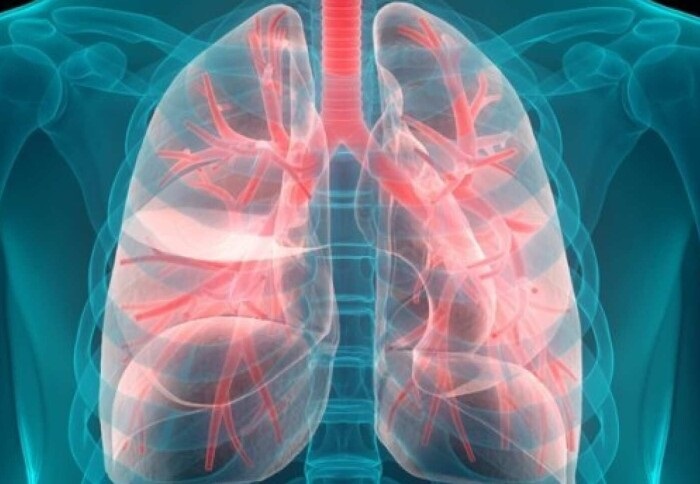AI-Powered Virtual Biopsy Helps Assess Lung Cancer from Medical Scans
Posted on 23 Feb 2024
Lung cancer, the leading cause of cancer-related deaths, presents a challenge largely due to the absence of symptoms in its early stages. This underscores the urgent need for new methods to detect and treat the disease before it metastasizes. Typically, patients exhibiting lung cancer symptoms undergo diagnostic procedures like chest X-rays and computed tomography (CT) scans, which can also reveal whether the cancer has spread. When feasible, a biopsy is taken for clinical scientists to examine under a microscope, identifying the type of lung cancer, which is crucial in determining the most effective treatment plan. Additionally, a more recent test, known as metabolomic profiling, requires a tissue biopsy and offers a deeper insight into the tumor cell's chemical and metabolic makeup, providing vital information on how the cancer may progress. However, this test is not commonly used in hospitals due to its labor and time-intensive nature.
Lately, artificial intelligence (AI), particularly generative AI that can create new content from learned data, is being increasingly employed in the field of medical imaging to detect diseases that might be overlooked by human doctors or are imperceptible to the naked eye. Now, researchers at Imperial College London (London, UK) have developed a system that integrates CT scans with the chemical profile of both tumors and normal lung tissue. This innovation not only classifies the type of lung cancer but also provides accurate predictions about patient outcomes. For the first time, the use of medical imaging combined with AI offers what could be considered a 'virtual biopsy' for cancer patients. This non-invasive technique is key in identifying lung cancer types and predicting cancer progression, especially when a physical tissue biopsy is unfeasible or inappropriate.

For the research, the team set out to determine if the chemical information of lung tumors, as indicated in their metabolomic profile, could be detected in CT scans. Building an AI model required training with data from patients who have undergone medical scans, received definitive diagnoses, and for whom additional clinical information is available. Utilizing data from 48 patients treated for lung cancer, each having undergone a CT scan and detailed metabolomic profiling of their tumor and adjacent healthy tissue, the team created an AI-driven deep learning tool named tissue-metabolomic-radiomic-CT (TMR-CT). They discovered a significant and strong link between the patients' metabolomic profiles and the 'deep features' in their CT scans, which manifest as variations in brightness or darkness in the images.
The researchers hypothesized that this method could eliminate the need for physical tissue samples, allowing for the inference of tumor metabolic characteristics directly from CT scans. To validate this, they applied the TMR-CT model to a separate group of 723 lung cancer patients who had undergone CT scans but lacked metabolomic data. The findings were remarkable: TMR-CT proficiently categorized lung cancer types and provided reliable predictions about patient outcomes, surpassing traditional CT-based methodologies and clinical evaluations. The team is hopeful about confirming the efficacy of TMR-CT in other patient groups, including those with brain, ovarian, and endometrial cancers, where obtaining biopsies is often challenging. Going forward, this technique could be integrated into commercial medical imaging scanners as an algorithm, thereby revolutionizing cancer diagnostics.
“This research shows the potential of using CT scans to gain a deeper, more nuanced understanding of tissue and tumor chemical composition, that has until now only been accessible through direct tissue sampling,” said Professor Eric Aboagye, from Imperial’s Department of Surgery and Cancer. “This method could prove particularly beneficial in countries like the UK, where lung cancer prevalence is high, and potentially transform diagnostic and treatment protocols.”
Related Links:
Imperial College London













